Staying Fit

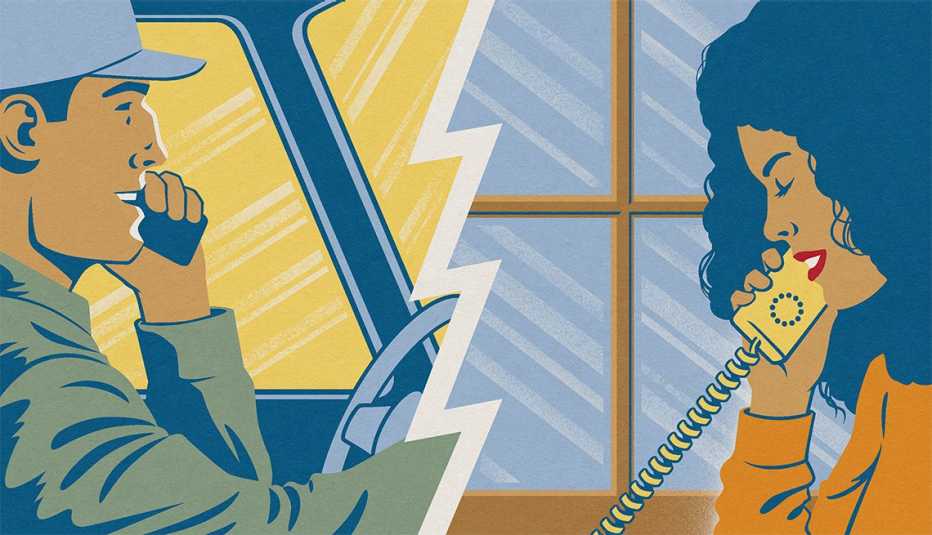
21
Face-to-Face with a Snake
“Ruddy! Take it easy, you’re okay, you’re okay,” Alan urged.
I realized I had been shouting incoherently. I clawed my way out of the snowbank, which had thawed and frozen so many times it had the consistency of pebbles against my palms. I staggered, wiping my face. I was by the side of a dark, wet road somewhere. I was wearing shorts and a T-shirt and a pair of running shoes. “What the hell is happening?” I yelled wildly.
“Hold on, you’re okay. We’ve been running, that’s all.
We fell. You’re fine, you’re fine.”


AARP Membership— $12 for your first year when you sign up for Automatic Renewal
Get instant access to members-only products and hundreds of discounts, a free second membership, and a subscription to AARP the Magazine.
“What do you mean, running?” I responded incredulously. I now saw where I was—about a hundred yards from the car lot where Claude worked, more than a mile from my home. A light fog danced around me in the frigid night air and I realized it was steam rising from my sweaty skin. “How did I get here? What is going on?”
Alan didn’t say anything. I hugged myself, though I really wasn’t cold. A thick sweatshirt was wrapped around my waist and I slipped it on, drawing the hood over my wet hair.
“Alan?”
“There was a pothole, and we slipped,” he explained.
“What does that mean? I don’t understand!” I crossed the street and began trotting back toward my house. “It’s the middle of the night, Alan.”
“Look, there’s something I have to tell you that you may not like very much.”
That didn’t sound good. “Try me.”
“A couple of weeks ago, you were asleep, and I was awake—”
“You said you slept,” I interrupted.
“Yes, but sometimes I’m awake when you aren’t. And I was thirsty ... .”
“What?” I demanded.
“Would you just let me tell it, please? I would never be so rude as to interrupt you like this,” Alan answered in a snippy tone.
“Okay, fine, but how could you be thirsty?”
“Do we have an agreement that you will let me tell this my own way?”
“Okay, yes, sure, Alan. I just woke up by the side of the road in the dark like I’d been dumped there by the Mafia, but you take your time explaining, that’s fine with me.”
“All right, then, I suppose you were thirsty, but you were asleep, so I was the only one feeling it. And I discovered that if I wanted to, I could just get up out of bed and get a drink of water, so I did.”
“You have got to be kidding me.”
“From then on, whenever you fell asleep, I found I could do things. Move around. Clean the house. Go out for a run.”
“You’ve been using my body when I was asleep?” I yelled, outraged. “Are you out of your mind?”
“What’s wrong with that? You’re getting exercise in your sleep. We’re up to five sets of fifty push-ups, three hundred sit-ups, and a run every night. You know how many people in this country would love to be able to do that without waking up?”
“You cannot be serious. Alan, this is like the invasion of the body snatchers.” I thought of my initial fear of the voice in my head, that it would start telling me to do things—instead, the voice was doing things on its own.
“Where the heck did you think we were going?”
“Just up the road to Leetsville and back.”
“Leetsville! That’s ten miles away!”
“No it isn’t, it’s only five. I measured it on the odometer,” Alan soothed.
“The odometer?” I shouted. “You’ve been driving in my sleep? Do you have any idea how dangerous that is?”
“Would you stop shouting? Anyone hearing you will think you’ve gone crazy.”
“I have gone crazy! I’ve got a voice of a dead man in my head who is trying to take over my body! It’s like I’ve become some sort of zombie!”
“It’s not like that at all—just the opposite, in fact,” Alan argued indignantly. “Do you know how quickly our times have fallen on a five-mile run? You’re already a better runner than I ever was, and I was doing forty miles a week when I was shot. I can’t believe how strong and fast you are.”
“You make it sound like I’m some sort of Ferrari you’ve been cruising around in,” I stormed. “I’m giving you a compliment.” “You’re stealing!” I bellowed.
By the time we were back on my street I had calmed down enough to make my statements to Alan clean and clear. “You may not do this again. Understand, Alan? I don’t care if I’m fat or thirsty or if my truck needs an oil change, you don’t do anything but lie there until I wake up. You read me on this?” I realized I was mimicking Sheriff Strickland—not a bad role model for issuing orders. Maybe I should be calling Alan “Lottner.” I paused outside my door. Alan didn’t reply. “Alan? I asked if you understand what I am telling you.”
Still nothing. “I know you’re not sleeping. Answer me.”
“I don’t see what the problem is,” he griped.
“I don’t care. My body is my body and you’re not to take it on any more joyrides.”
I went inside and showered off the sweat and the mud. Jake didn’t seem at all surprised that I’d been out running; he just seemed glad I hadn’t dragged him along. “You knew and you didn’t say anything? Why didn’t you bark, wake me up?” Jake just gave me a weary look in return.
Alan slipped away, possibly exhausted from running halfway to Leetsville, but I lay in bed and stared at the ceiling and pondered one disturbing thought: If Alan decided to use my body when I was asleep, how was I going to stop him?
By the time I drifted off, the sky was growing lighter with the dawn. I went to Milt’s and picked up an SFU assignment—Spot For Unit. Fifty bucks to drive by the house of the customer’s relative and see if a canary yellow Corvette was in the driveway—a car painted that color, up here this time of year, would probably be visible as a glow on the horizon.
Jimmy was waiting tables at the Bear. I ordered an omelet without making any sarcastic remarks about the fact that I could have asparagus in it if I wanted. Alan was still asleep.
Claude and Wilma came in together, sat together, and ate together without slander. Claude had a sheepish look on his face when he glanced in my direction. Wilma’s expression was warmer—apparently I was included in the general amnesty. I smiled at them and Wilma patted Claude’s hand. Jimmy was right about the two of them.
I sipped coffee and took in the general transformation of the Bear. It wasn’t just the new curtains and tablecloths; there was a whole new feel to the place. It smelled like flowers instead of stale beer, and I could hear the new grill sizzling in the kitchen. The pool table was gone, which was a little disappointing because I had just been on the verge of mastering the game, and the floor had been polished. Bob the Bear looked less grumpy.
Things change. I thought about Katie Lottner, picturing her here with me, more comfortable in a place that had a stack of new child booster seats in the corner than one with a couple of guys having a fistfight over which company made the best motor oil.
Alan woke up as I was conducting my SFU assignment, driving past the house on the rural outskirts of Traverse City. The driveway to the place was buried under a foot of rutted, muddy snow—apparently the people living there had decided that snowplows were for wussies. The only way to get a Corvette in there would be to drop it in with a crane. I would tell Milt to close file.
Alan wanted to go to East Jordan and stake out Burby to see if Wexler showed up. “But I don’t think that the two of them spend a lot of time hanging out together, reminiscing about the day they shot a Realtor in the woods,” I objected. “I think we need to go at it a different way.”
Alan and I decided that a company with a board of directors probably was a public company, which meant that it would have a prospectus we could obtain from a stockbroker. Actually, Alan did most of the deciding on this, but it sounded reasonable. We stopped at our town’s sole remaining phone booth to look for stockbrokers in the yellow pages, and on a whim I flipped to the residential listings and found an “F. Wexler” on Peninsula Drive.
“Think that’s him?” Alan asked.
“Let’s go see.”
The Old Mission Peninsula is an eighteen-mile stretch of beautiful coastline that sticks out into Grand Traverse Bay as if the Ice Age had decided to carve out a neighborhood just for rich people. Wexler’s house had pillars and a large front porch, a view of the water, and what looked like two acres of prime real estate growing disciplined grass and hedges. I knocked on the door, wondering if a butler would answer.
No, not a butler—a killer. He stood there and looked me up and down with his cold green eyes. Shorter than I remembered from the dream, which made sense—Alan wasn’t as tall as I. “Yeah?”
“Mr. Wexler?” I asked, for something to say. Alan seemed too shocked to speak.
“Yeah?”
I suppose Wexler was handsome, with short, sandy hair, a square jaw, and a solid body, but I felt like I was face-to-face with a snake.
“I was over in East Jordan, at PlasMerc Manufacturing? Saw your picture on the wall, there.”
Annoyance tugged at the corners of his mouth. “And?” he pressed impatiently.
“I was wondering if you’re hiring. You know. Night shift, maybe? I’m a friend of Einstein Croft.”
Wexler shook his head. “I don’t have anything to do with that. They’ve got a personnel office. You should try there.”
“Tell him as a board member, you’re hoping he’d have influence,” Alan coached.
“Well right, I figured that, but you’re on the board; they’d listen to a recommendation from you.”
“Look ... what’s your name?”
“Ruddy McCann.”
I was testing for some sort of reaction, but he obviously hadn’t heard about me from Nathan Burby. “Uh-huh. Well, I don’t have anything to do with that place, okay? I sold them the land it’s on, and part of it is I get paid as a board member, but I don’t got the kind of time to go to the meetings or anything.”
“The land? I thought the land was from the old cemetery.”
He thought for a second, his eyes unreadable. He probably wanted to tell me to get the hell off his front porch so he could go back to practicing his golf swing or what ever it was people like him did all day, but I knew something about him: He was a killer, with a secret to hide. Though he wasn’t sure where I was headed, I was blundering around in the area close to an awful truth, and he’d practiced his lies and would feel compelled to roll them out for me now.
“Yeah, right, the city had to cut a separate deal for that, it was a small piece of the parcel.”
“So how does something like that work? Did you and the cemetery guy get together and approach the factory, or did they contact you?”
“They contacted me, but I never met the owner of the cemetery.”
“Wait, never met? Why would he lie about that?” Alan demanded.
“Never?”
“So you get it? I sold them the land, but I don’t have anything to do with running the factory. It’s some outfit out of Memphis.”
“What’s the name of the guy who owns that cemetery?”
He blinked his cold green eyes at me. “I told you,” he said evenly. “I never met the man. So good luck with the job.”
He made to shut the door, but I put out a friendly hand and stopped it. His expression flashed at me, then turned unreadable. I bet his hands were itching to get themselves wrapped around a shovel.
“We got a problem, here?” he growled softly.
“I was just wondering, you live here now, but back then you were in East Jordan?”
“You want to let go of my door?”
“It’s a pretty place, don’t you think? There’s that little river in the valley, there. You ever go for a drive down one of those back roads in the fall, see all the pretty colors? You and Nathan Burby, standing around having a conversation when this big wide Oldsmobile station wagon drives past?” He stared at me.
“My God, Ruddy,” Alan breathed. “What are you doing?”
“They never found the car, you know. What do you suppose happened to it? The cops didn’t bother to check the junkyards, because they thought Lottner ran away. Did you hear they found him? Alan Lottner, I mean. Dug up his body.”
I could read the look he was giving me now because I’d seen it in his eyes before, right before he hit Alan with the shovel. “You have no idea what you’re stepping in,” he said softly.
“Oh I do, I do, Frank,” I responded. I took a deep sniff. “I know because I can smell it.”
I turned and walked down his flagstone path. As I backed my truck out of his brick-lined driveway, I glanced up and saw him still standing there in the doorway.
“What in God’s name were you thinking?” Alan wanted to know.
“Did you like that? ‘I know because I can smell it.’ Get it?”



























































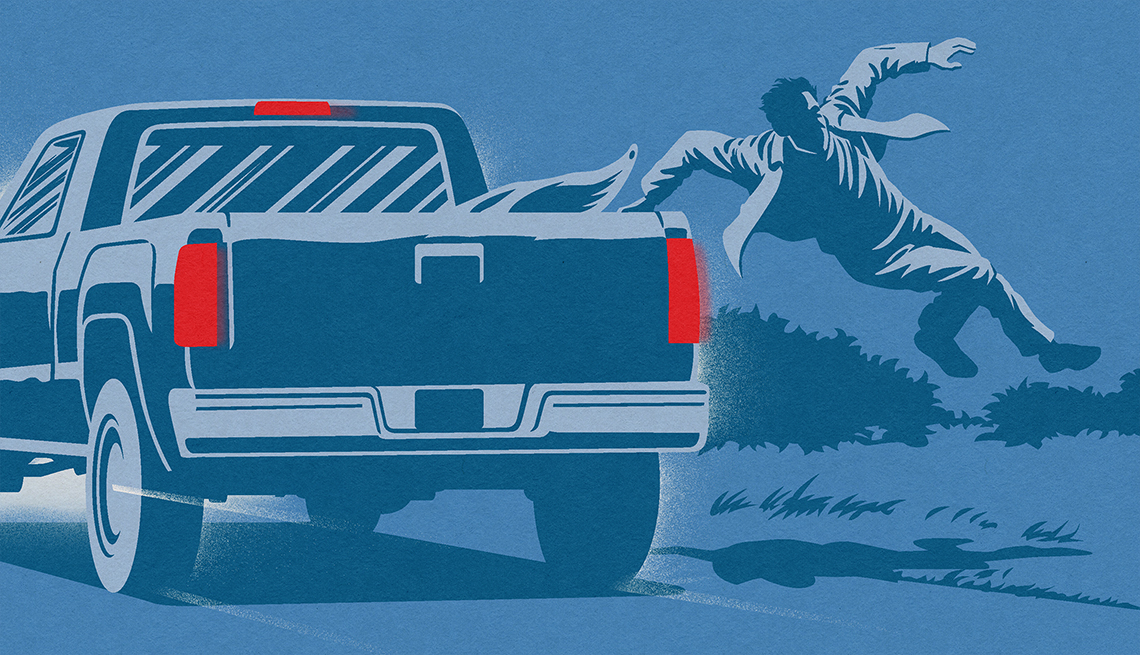

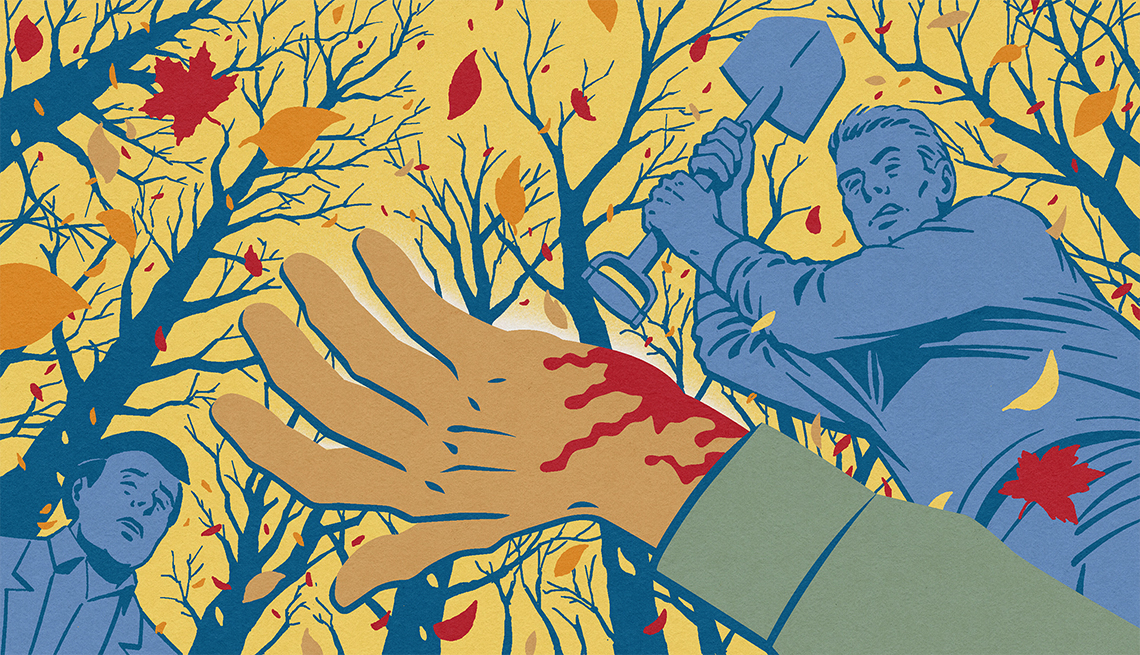
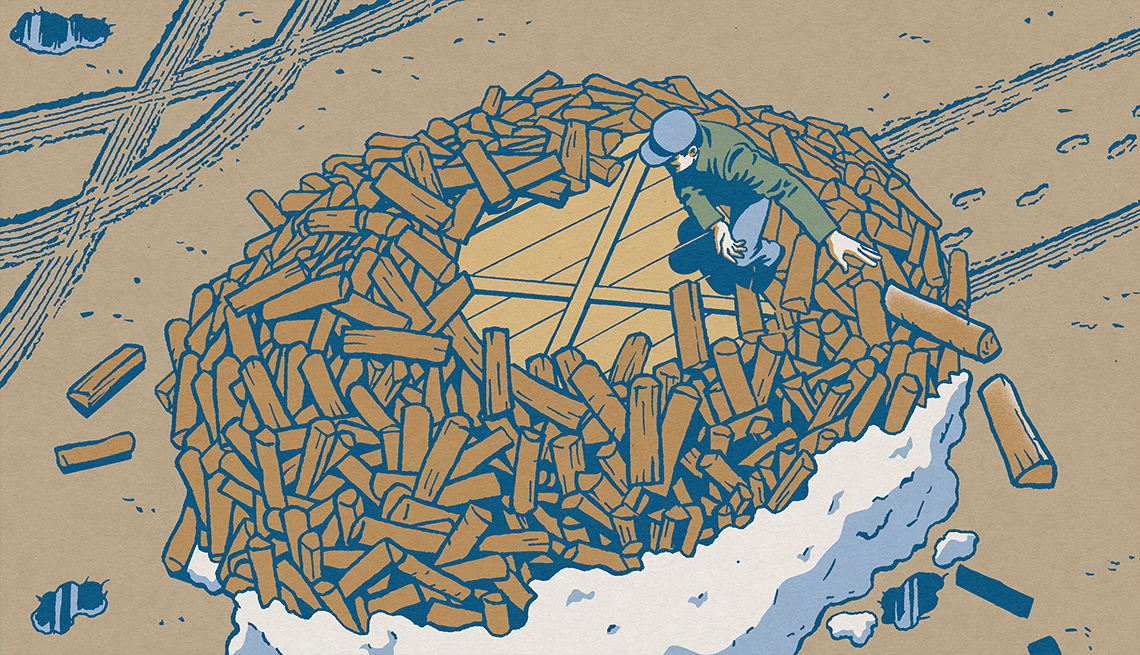
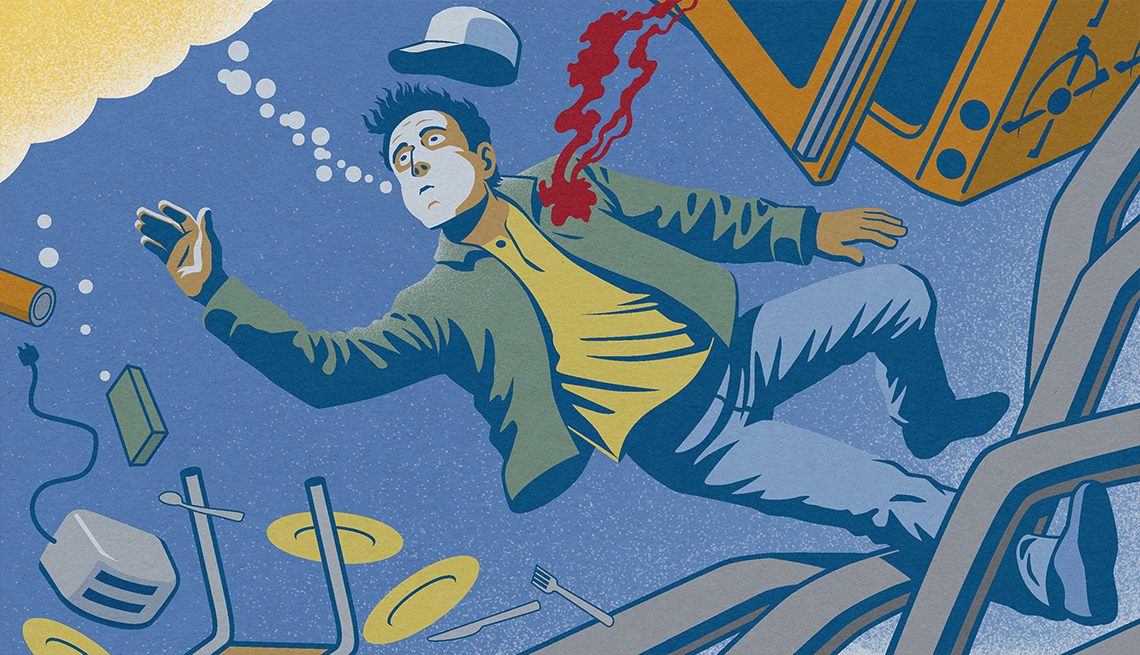
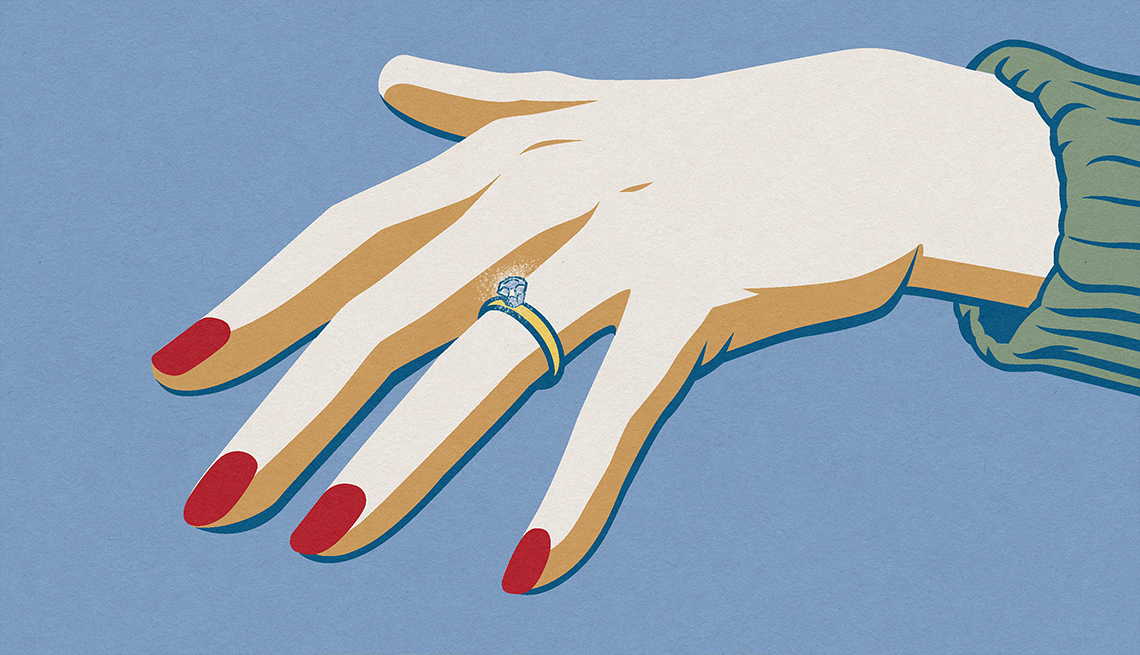
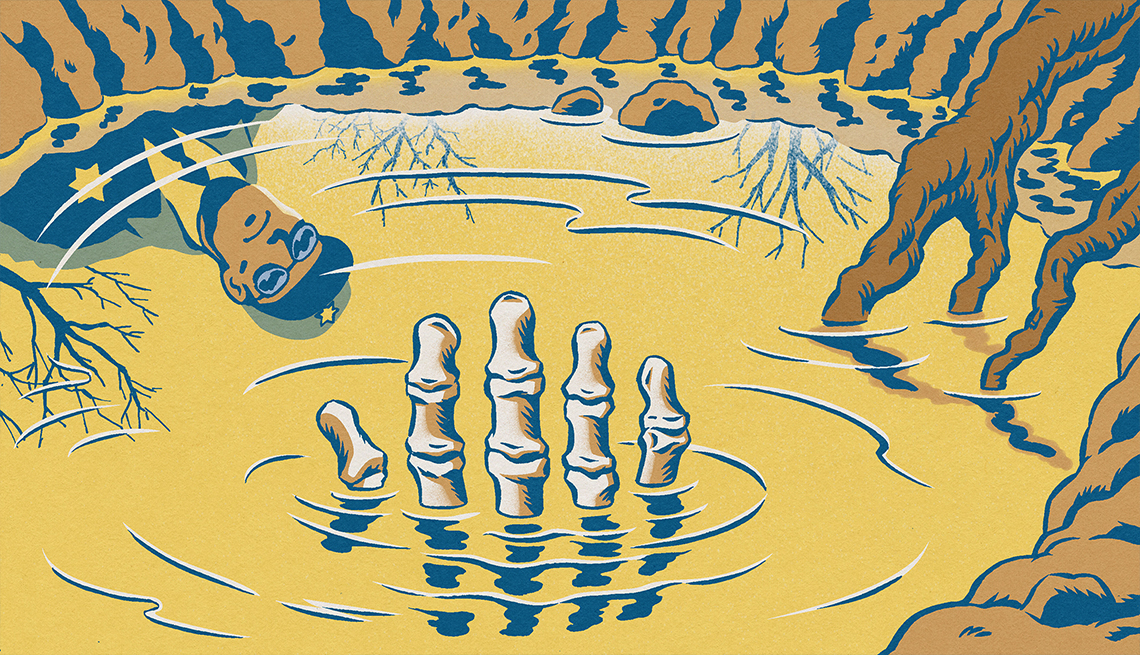
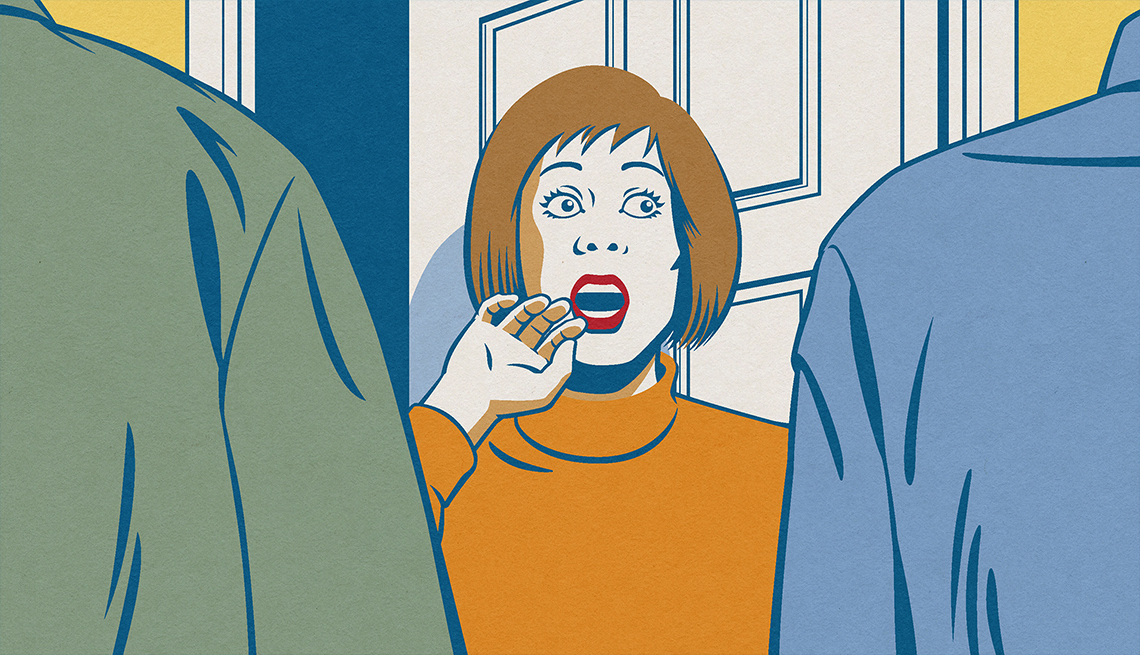
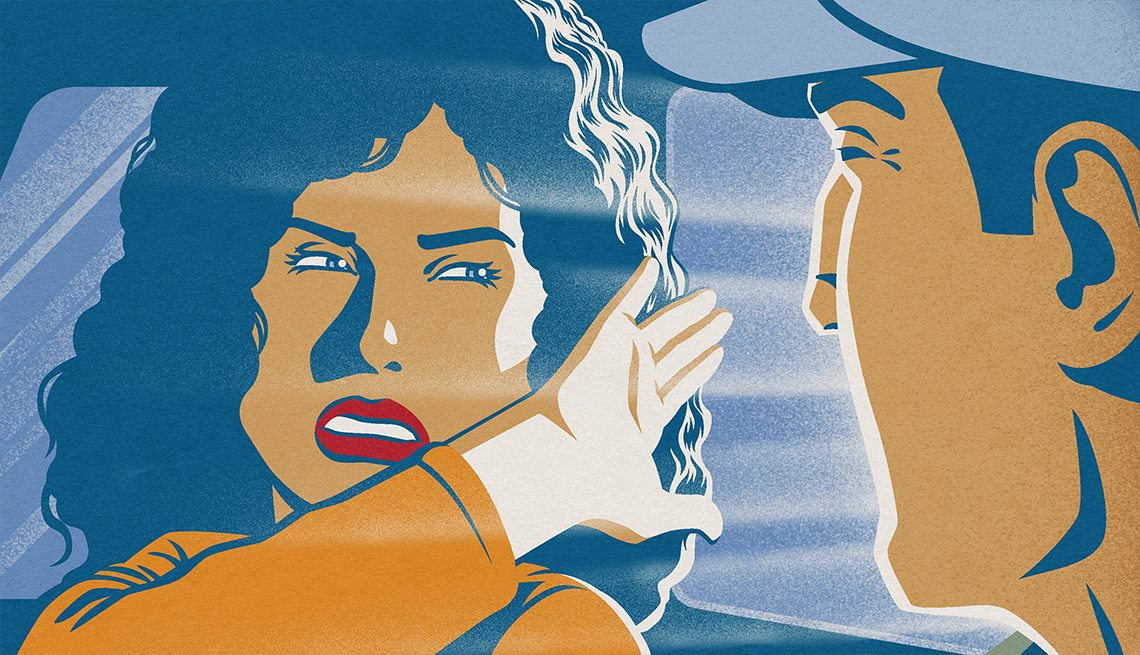
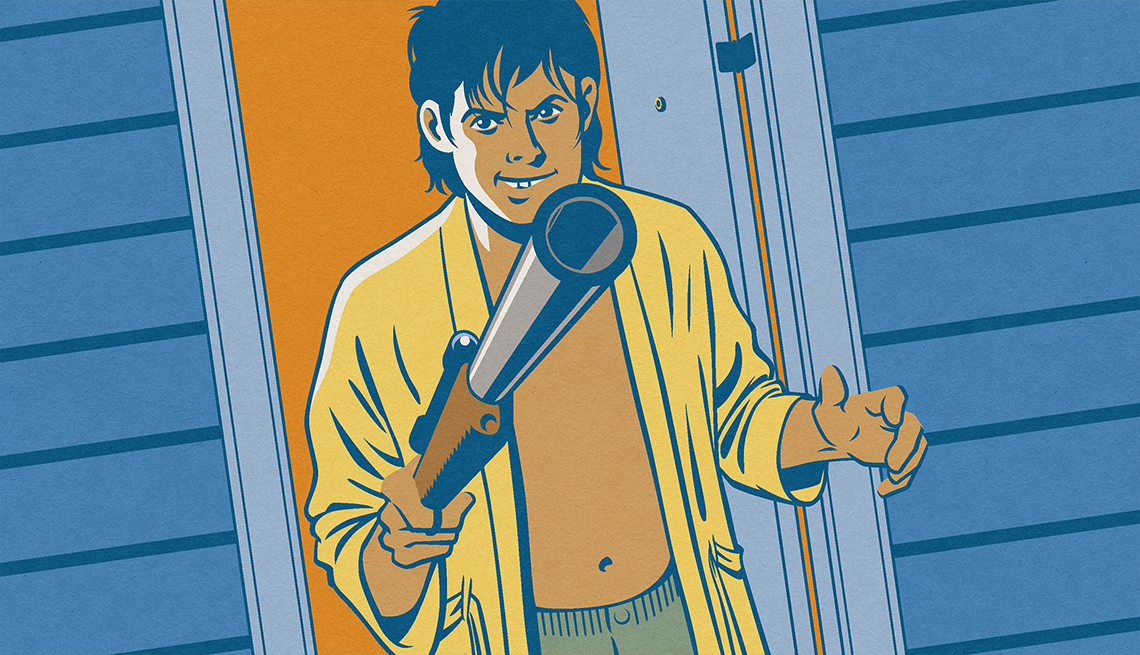
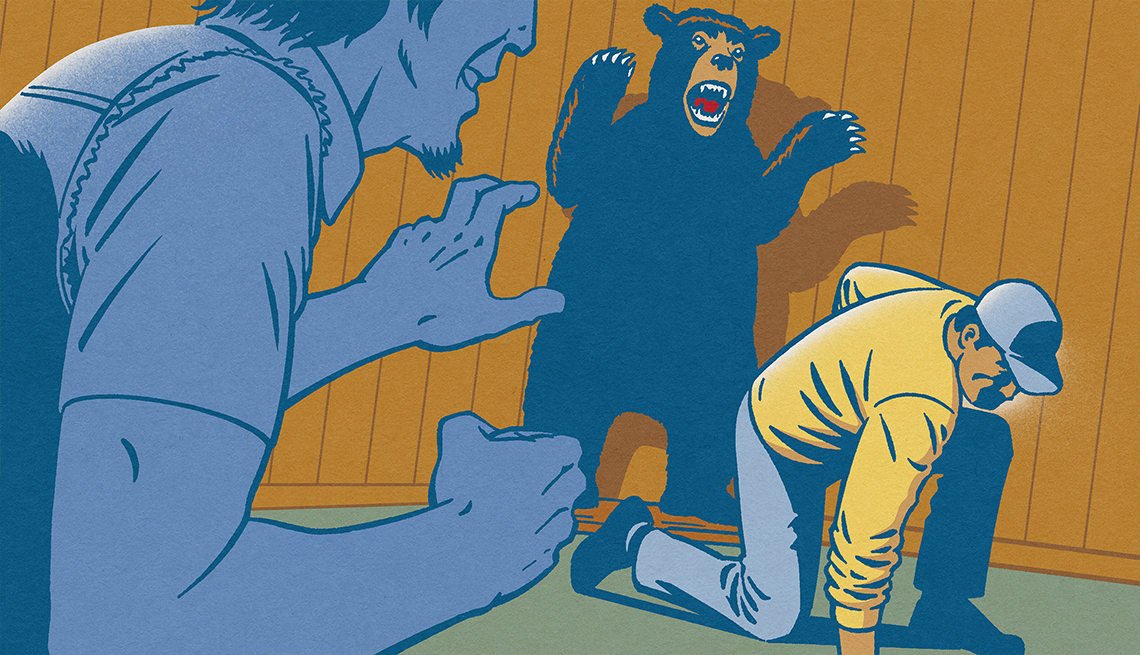
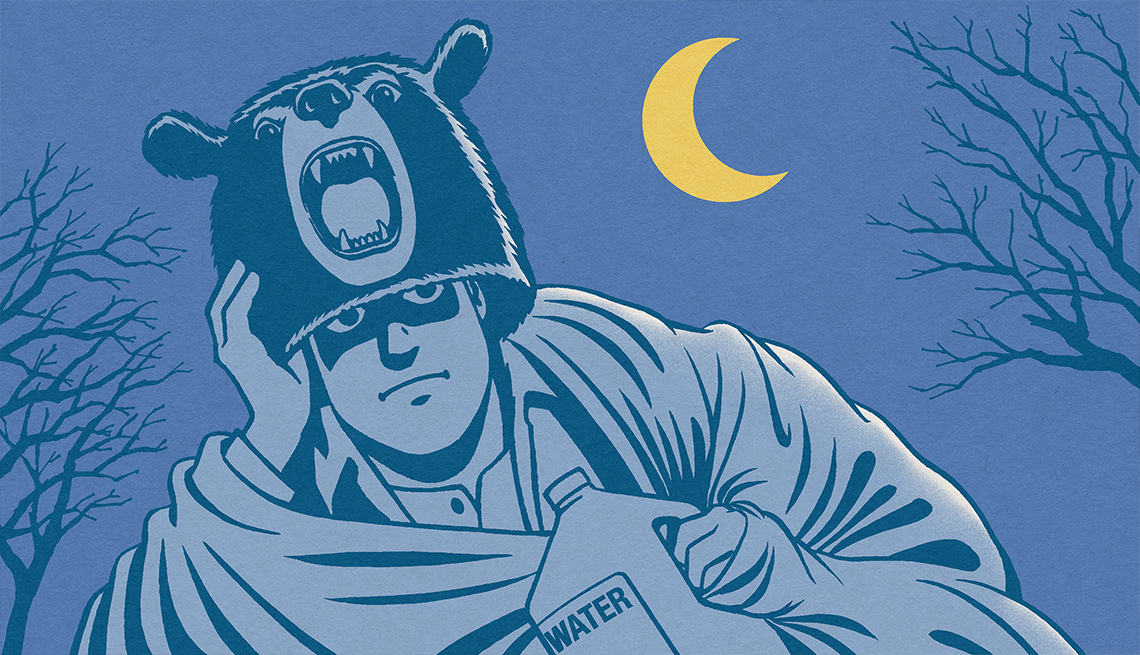
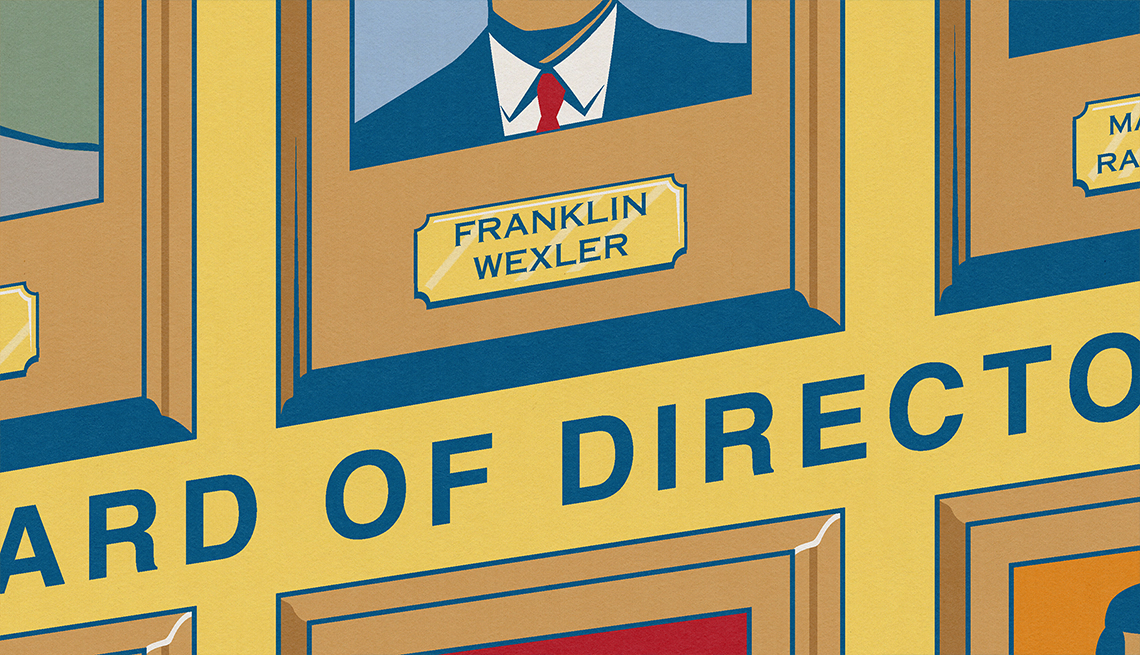
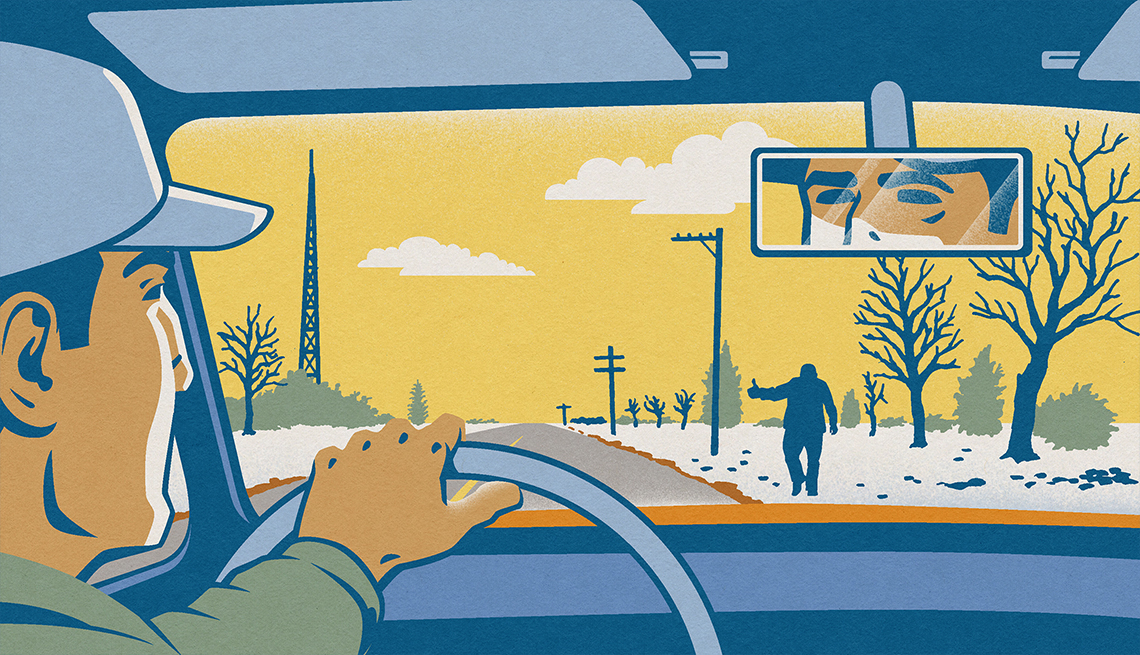

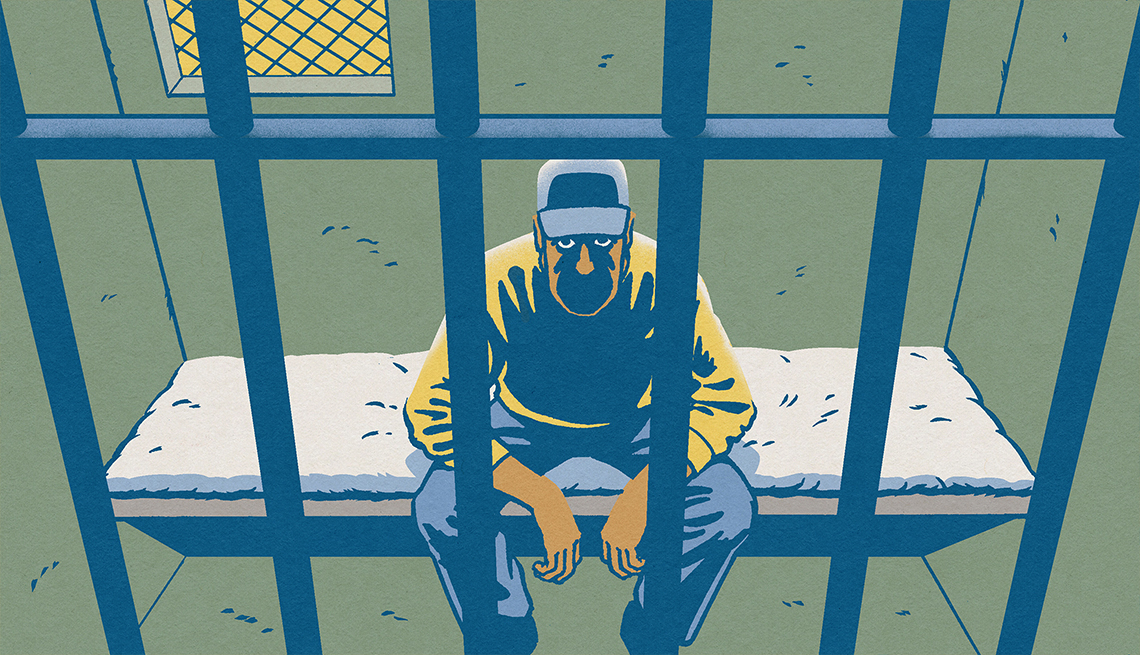







More From AARP
Free Books Online for Your Reading Pleasure
Gripping mysteries and other novels by popular authors available in their entirety for AARP members